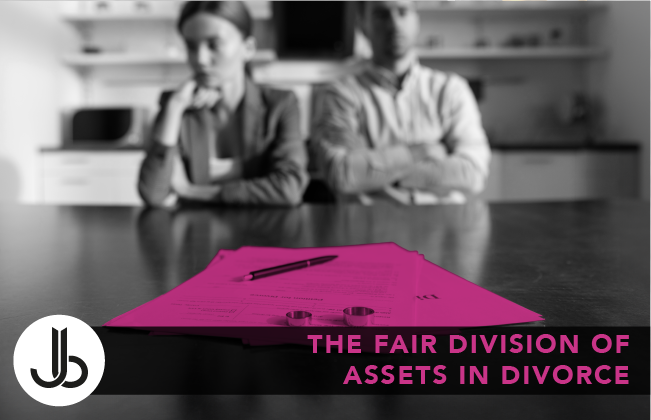

Divorce isn’t just about parting ways emotionally; it also involves untangling a web of shared assets. From properties and savings to pensions and businesses, the division of assets during a divorce can be complex and emotionally charged. Seeking legal guidance can make this process smoother and ensure a fair outcome for both parties involved.
Here are five tips to help individuals navigate the fair division of assets during divorce:
- Gather Comprehensive Documentation: When facing divorce, having a comprehensive record of all assets is crucial. This includes property deeds, bank statements, investment portfolios, pension statements, and business documents. This not only aids in transparency but also helps in evaluating the total worth of shared assets.
- Consider Mediation: Opting for mediation can often be more amicable and cost-effective than going straight to court. A skilled mediator can help facilitate discussions about asset division, allowing both parties to reach mutually beneficial agreements.
- Understand Your Rights and Entitlements: It’s vital to have a clear understanding of your rights concerning asset division in a divorce. For instance, the division might not always be a 50/50 split. Factors such as contributions to the marriage, financial needs, and the welfare of any children will be considered.
- Assess Tax Implications: Dividing assets might have tax consequences. Certain assets, like pensions or investments, might incur taxes upon transfer. Seeking professional advice can help minimise tax liabilities during asset division.
- Seek Legal Counsel: Engaging a solicitor specialising in divorce and asset division can make a significant difference. A skilled solicitor can provide legal guidance, negotiate on your behalf, and ensure a fair and legally sound division of assets.
Now, here are five key points to consider to potentially avoid problems during asset division:
- Pre-nuptial Agreements: Consider drafting a pre-nuptial agreement before marriage. While it may seem unromantic, it can provide clarity on asset division in case of divorce, potentially avoiding disputes.
- Regularly Update Financial Documentation: Periodically updating financial records ensures that both parties are aware of the current value of assets, simplifying the division process if needed.
- Maintain Separate Assets: Keeping certain assets separate, especially those acquired before the marriage or inherited, can help differentiate between marital and individual property.
- Consider Collaborative Law: Collaborative law involves working with lawyers trained in cooperative negotiation, aiming to resolve issues without going to court, reducing conflict and legal fees.
- Focus on Fairness Rather Than Revenge: Emotions can run high during divorce, but prioritising fairness over revenge can lead to a more constructive and satisfactory resolution for both parties.
Statistics show that nearly 42% of marriages in England and Wales end in divorce. Seeking legal advice from professionals like Johnson & Boon Solicitors can significantly ease the complexities of asset division during divorce.
If you find yourself navigating a divorce and need assistance with asset division or seek general advice, contact Johnson & Boon Solicitors at 0151 637 2034 or email us at info@johnsonandboon.co.uk. Our team is dedicated to providing expert guidance tailored to your unique situation.
